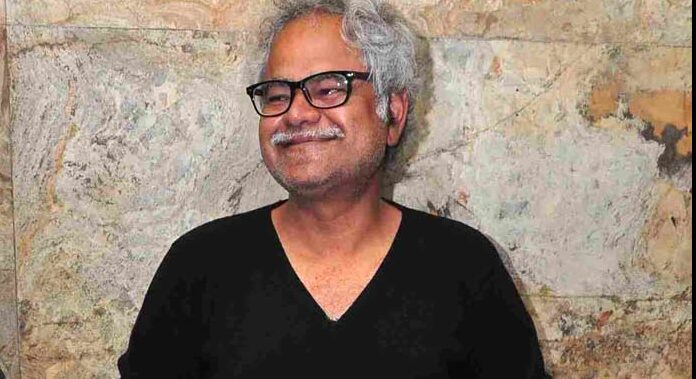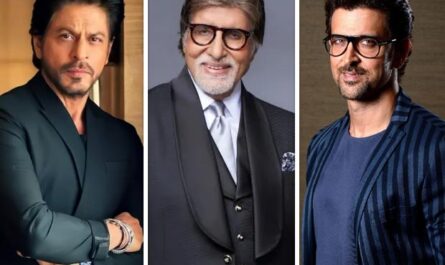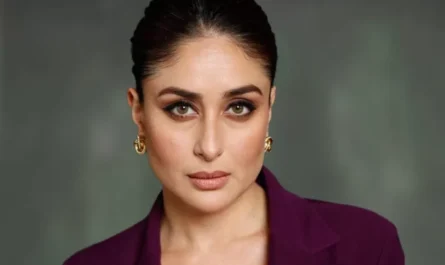In the ever‑evolving landscape of South Asian cinema, few topics ignite as much discussion and debate as cross‑border collaborations. One of the most talked‑about potential reunions in recent memory is the return of Pakistani superstar Fawad Khan to Bollywood. His first foray into Hindi cinema with Karan Johar’s Khoobsurat (2014) and subsequent appearance in Kapoor & Sons (2016) garnered both critical acclaim and popular affection, but geopolitical tensions led to an effective ban on Pakistani actors in India from 2017 onward. Now, with political relations showing tentative signs of thawing, veteran actor Sanjay Mishra has stepped forward to comment on Fawad’s potential comeback, dubbing it not merely a matter of film casting but an “international issue.”
This article delves into the background of Fawad Khan’s Bollywood journey, examines the factors that led to his exclusion from Indian films, analyzes the significance of Sanjay Mishra’s comments, and explores what a return could mean for the industry, audiences, and broader cultural diplomacy. This piece seeks to provide a comprehensive perspective on one of the most intriguing topics at the intersection of cinema and international relations.
1. Fawad Khan’s Bollywood Beginnings: A Promising Start
Fawad Khan, born in 1981 in Karachi, Pakistan, first captured the public’s attention through his work in Pakistani television dramas such as Humsafar (2011) and Zindagi Gulzar Hai (2012). His portrayal of charming, complex characters earned him a devoted fan base across South Asia. Bollywood came calling in 2013, when Karan Johar cast him as the male lead opposite Sonam Kapoor in Khoobsurat.
- Critical and Commercial Reception: Khoobsurat performed moderately at the box office but was widely praised for Fawad’s nuanced performance, which balanced wit, warmth, and vulnerability. Critics noted his effortless screen presence and chemistry with Kapoor, positioning him as a fresh talent capable of appealing to Indian audiences.
- Follow‑Up Success: In 2016, Fawad starred in Shakun Batra’s Kapoor & Sons, playing a closeted gay man in a dysfunctional family. The film became one of the year’s biggest hits, and Fawad received a Filmfare Award for Best Supporting Actor, cementing his reputation as a versatile performer.
These early successes set the stage for a potentially flourishing Bollywood career—until political events intervened.
2. The Ban on Pakistani Artists: Geopolitics Intrudes
In September 2016, after a terrorist attack in Uri, the Indian Motion Picture Producers Association (IMPPA) and the Film Producers Guild of India decided to ban Pakistani artists from working in Indian films. This decision was driven by nationalist sentiments and security concerns, and it led to an abrupt halt in cross‑border artistic collaboration.
- Immediate Impact: Projects featuring Pakistani talent were shelved or recast. Fawad Khan’s rumored role in Dhoom 3 and other high‑profile films never materialized. Similarly, singers such as Rahat Fateh Ali Khan and Atif Aslam saw invitations to perform at Indian events rescinded.
- Industry Response: While many Bollywood insiders privately lamented the loss of creative exchange, publicly they adhered to the ban, wary of backlash from nationalist groups and political pressures. Some argued that art should transcend politics, but the official stance remained firm.
This period effectively froze Fawad Khan’s Bollywood career at its peak, creating a sense of “what could have been” among fans and industry watchers alike.
3. Glimmers of Hope: Thawing Relations and Industry Murmurs
In the years following the ban, there were occasional hints that Indian producers and directors still valued Pakistani talent. Rumors surfaced of secret discussions, and Fawad himself expressed a desire to return to Bollywood when conditions allowed. Meanwhile, smaller co‑productions and regional film festivals continued to showcase Pakistani films in India, keeping cultural dialogue alive.
- Cultural Diplomacy: Soft‑power advocates on both sides of the border argued that film and television offered a unique platform for fostering mutual understanding. Joint ventures such as Indo‑Pak film festivals highlighted shared heritage and storytelling traditions.
- Fan Campaigns: On social media, hashtags like #BringBackFawad trended periodically, driven by fans who remembered his charisma and acting prowess. These grassroots efforts underscored the enduring demand for his return.
Against this backdrop, any official statement from a respected Bollywood figure could potentially shift the narrative—enter Sanjay Mishra.
4. Sanjay Mishra’s Comments: “An International Issue”
In a recent interview with a leading entertainment portal, Sanjay Mishra—an acclaimed actor known for his roles in Ankhon Dekhi (2014), Masaan (2015), and Golmaal Again (2017)—addressed the question of Fawad Khan’s Bollywood comeback. Mishra’s remarks were notable not only for their content but also for their framing: he described Fawad’s potential return as an “international issue.”
- Key Excerpts:
- “Fawad Khan is a tremendous talent. His work in Khoobsurat and Kapoor & Sons showed he has a rare screen presence.”
- “The question of him working in Bollywood isn’t just about cinema; it reflects the state of India‑Pakistan relations. When our industries collaborate, it sends a powerful message of peace.”
- “Calling it an international issue may sound grand, but it’s true. Art and culture are ambassadors that can bridge divides politics often widen.”
Mishra’s stature as a veteran character actor lends weight to his perspective. Unlike superstar peers who might shy away from political overtones, Mishra embraced the broader significance of cross‑border artistic exchange.
5. Interpreting Mishra’s Framing: Cinema as Soft Power
By labeling Fawad’s return an “international issue,” Mishra tapped into the concept of soft power—the ability of a country to influence others through culture, values, and ideology rather than military or economic might. Bollywood, as one of India’s most visible cultural exports, wields significant soft power across South Asia and beyond.
5.1 Cultural Diplomacy in Practice
- Historical Precedents: The Indo‑Soviet friendship in the 1970s saw Bollywood co‑productions with Soviet studios, and India’s films were popular in Eastern Europe. Similarly, Indo‑Pak collaborations in the 1950s and 1960s demonstrated early post‑Partition cultural ties.
- Contemporary Relevance: In an era of global streaming, Netflix and Amazon Prime feature Indian and Pakistani content side by side, attracting international audiences. A high‑profile return by Fawad Khan could reignite interest in cross‑border projects and encourage similar casting decisions.
5.2 Political Symbolism
Mishra’s remarks imply that allowing Fawad back into Bollywood would signal a willingness to engage in dialogue, even amid political tensions. Such a move could:
- Ease Public Sentiment: Fans on both sides often voice frustration over politicized bans. A well‑received return might improve people‑to‑people relations.
- Encourage Governmental Goodwill: While the film industry operates independently, a successful cultural collaboration could pave the way for broader diplomatic engagement.
6. Industry Perspectives: Producers, Directors, and Co‑Stars
Beyond Mishra, voices across the industry have weighed in on the topic—some with cautious optimism, others with pragmatic concerns.
6.1 Producers and Directors
- Creative Considerations: Directors who have worked with Fawad praise his professionalism and versatility. “He brings a fresh energy to every set,” notes a prominent filmmaker. “We’d love to collaborate again.”
- Financial Implications: Casting Fawad could open markets in Pakistan and among the diaspora, boosting box‑office returns. However, producers must weigh potential political backlash and the risk of protests or boycotts.
6.2 Co‑Stars’ Reactions
Actors who shared the screen with Fawad recall his collaborative spirit. Sonam Kapoor, his Khoobsurat co‑star, once said in an interview, “Working with Fawad felt like making a film with your best friend.” Such endorsements highlight the personal goodwill Fawad enjoys within Bollywood.
7. Audience Expectations and Fan Dynamics
Fans play a critical role in shaping casting decisions through social media campaigns, box‑office performance, and streaming metrics.
7.1 Social Media Movements
Hashtags like #FawadInBollywood and #BringBackFawad have periodically trended on Twitter and Instagram, reflecting pent‑up demand. Fan‑made trailers and clips—editing Fawad into popular Bollywood songs or scenes—demonstrate both creativity and passion.
7.2 Diaspora Influence
South Asian diaspora communities in the UK, USA, Canada, and the Middle East form a significant audience segment. Their support for cross‑border projects can translate into lucrative overseas box‑office receipts, making Fawad’s return commercially attractive.
8. Challenges and Potential Roadblocks
Despite optimism, several hurdles remain:
8.1 Political Sensitivities
- Governmental Stance: Any official ban would need to be lifted or quietly ignored. While some politicians advocate cultural exchanges, others capitalize on nationalist sentiments.
- Security Concerns: Producers must ensure the safety of Pakistani artists working in India, addressing any threats from extremist groups.
8.2 Logistical and Legal Issues
- Work Visas: Securing visas for Pakistani nationals can be complex, requiring diplomatic channels and assurances of compliance with local regulations.
- Contractual Clauses: Co‑production agreements may need explicit clauses to protect artists in case of political flare‑ups.
8.3 Public Relations Management
A misstep—such as a public protest at a premiere—could derail goodwill. Careful PR strategies, community engagement, and transparent communication will be essential.
9. Precedents and Lessons from Other Industries
Bollywood is not alone in navigating cross‑border collaboration amid political tension. Other examples include:
9.1 Korean and Japanese Cinema
Despite historical animosities, Japanese actors have appeared in Korean films and vice versa, often under neutral banners such as international co‑productions or film festival circuits. Careful branding and emphasis on shared artistic goals have helped mitigate backlash.
9.2 Hollywood and Cuban Talent
Recent US‑Cuba thaw saw Cuban musicians and actors contributing to American projects, illustrating how diplomatic détente can unlock creative partnerships.
These precedents suggest that with the right mix of political will, industry leadership, and audience support, Fawad Khan’s Bollywood return is feasible.
10. A Roadmap for Fawad Khan’s Comeback
To transform speculation into reality, stakeholders could consider the following steps:
- Industry Coalition: Leading production houses and directors publicly express support for Fawad’s return, creating momentum and signaling to policymakers.
- Diplomatic Engagement: Film industry bodies liaise with cultural ministries in both countries to facilitate visa processes and address security protocols.
- Joint Cultural Events: Organize an Indo‑Pak film festival featuring both Bollywood and Lollywood (Pakistani cinema) retrospectives, highlighting past collaborations and building goodwill.
- Strategic Casting: Announce Fawad’s return in a high‑profile project—perhaps a neutral story or pan‑South Asian narrative—to minimize political overtones.
- Community Outreach: Engage fans through interactive digital campaigns, Q&A sessions with Fawad, and behind‑the‑scenes content to build excitement and demonstrate popular demand.
By following such a roadmap, the industry can navigate complexities and set a precedent for future cross‑border collaborations.
11. Conclusion: More Than a Movie Star’s Return
Sanjay Mishra’s framing of Fawad Khan’s Bollywood comeback as an “international issue” underscores the profound interplay between art, politics, and diplomacy. This is not merely about casting decisions or box‑office projections—it is about leveraging the unifying power of cinema to bridge divides, foster mutual respect, and reaffirm shared cultural heritage.
As the world watches, the potential return of Fawad Khan to Bollywood could mark a significant milestone in South Asian relations, demonstrating that despite geopolitical tensions, the human stories we tell—and the artists who tell them—can transcend borders. For Fawad, Sanjay Mishra, and the millions of fans eagerly awaiting their reunion, this moment carries both personal and symbolic weight. Should it come to pass, it will stand as a testament to the enduring belief that art, above all else, can unite where politics divides.



